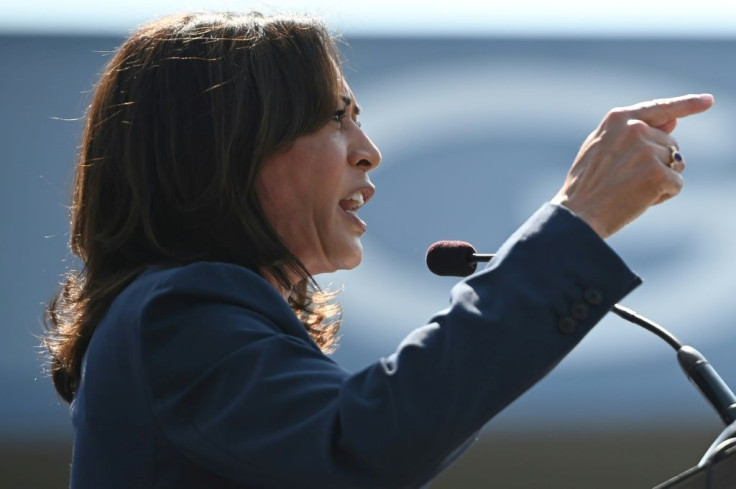Why Did Kamala Harris End Her Campaign? Democrat Surprises Many With Early Exit From 2020 Bid

Sen. Kamala Harris announced she would be ending her bid for the Democratic nomination for the presidency in a staff call Tuesday.
"Here's the deal. We don't have enough money to continue with the campaign. And so I'm going to suspend the campaign today," Harris reportedly told her staff.
She later told supporters: "I'm not a billionaire. I can't fund my own campaign."
Harris, D-Calif., had been facing an increasingly dire standing in the race. The latest RealClearPolitics polling average -- which uses an aggregate of national polls to gauge candidate standing -- estimated she had the support of just 3.4% of Democratic primary voters, behind former New York City Mayor Michael Bloomberg, who was at 4% and hadn't even entered the race formally until last week. In early November, the Harris campaign closed three out of four of its offices in New Hampshire, laying off more than a dozen field organizers.
The California senator's campaign hit its polling peak in mid-summer after Harris had a spirited exchange with former Vice President Joe Biden about school busing during a televised debate. Harris called attention to Biden's opposition in the 1970s to using busing to desegregate public schools.
"There was a little girl in California who was a part of the second class to integrate her public schools, and she was bused to school every day. And that little girl was me," she said, citing her own experience being bused as a child.
But Harris's campaign struggled to find a consistent ideological lane in a primary that became increasingly polarized between progressive and moderate factions. For instance, the senator began the campaign by embracing legislation by Sen. Bernie Sanders, I-Vt., that would create a Medicare-for-all, single-payer health care system. But Harris later backed away from that bill, favoring instead a proposal that would maintain a role for private insurance.
Harris also struggled to defend her record as San Francisco district attorney and California's attorney general, which was criticized by some progressives as being unneccessarily punitive. During the July Democratic primary debate, Rep. Tulsi Gabbard, D-Hawaii, called attention to marijuana prosecutions that took place under Harris' watch, in a debate moment that was widely perceived as damaging to Harris. Major donors to the campaign were reportedly frustrated at Harris's inability to respond to Gabbard's attack.
© Copyright IBTimes 2025. All rights reserved.





















